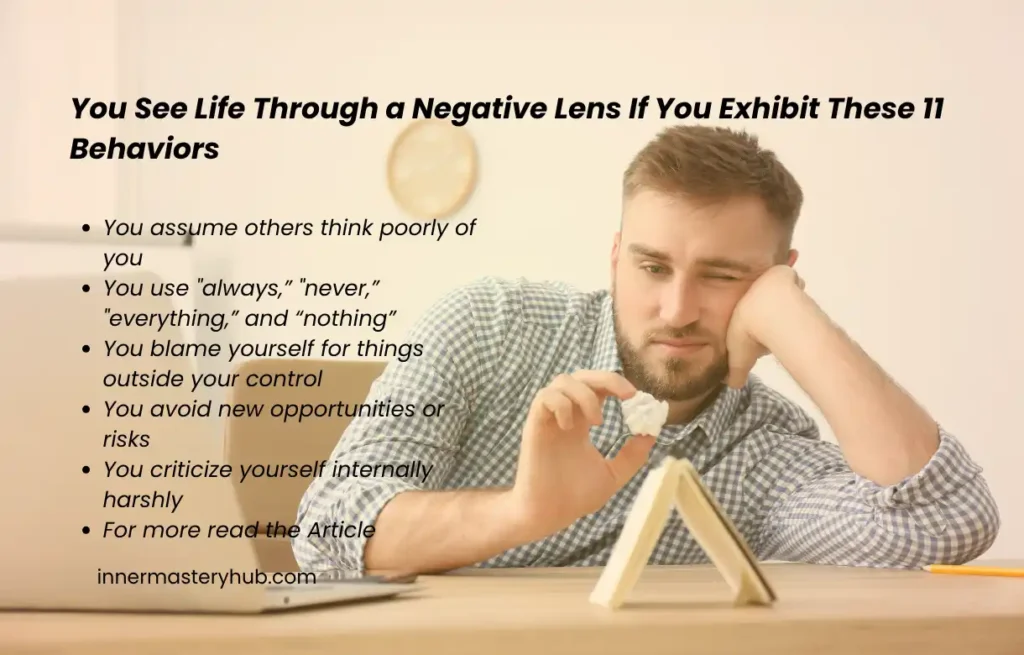Am I the Problem? 7 Signs You Might Be the Toxic One
Am I the Problem? This question comes from feeling confused or overwhelmed. Self-reflection is healthy, but constant self-doubt harms your confidence. Learn the difference between taking responsibility and unfairly blaming yourself.

If you’re here, you’re undoubtedly juggling problems in your relationship, family, or circle of friends, and you’re asking the difficult question: Am I the Problem? It’s beneficial to ponder that question. How do you tell whether you’re the toxic partner in your relationships?
What will happen? You be the toxic one? See our list of warning indicators that you might be the toxic one and unhealthy tendencies below, along with advice on changing your behaviour for the long-term, healthy interpersonal relationships.
What are the reasons behind thinking, “Am I the problem?”
If you have most of the following characteristics, you may be the Problem and need to examine yourself to identify areas for self-improvement. The following are seven signs of a toxic person.
Manipulative inclinations are suggested by a persistent attempt to manage circumstances for your benefit. To achieve your goals, resorting to manipulative strategies for personal gain, such as lying or guilt-tripping, can be detrimental to others’ autonomy and well-being. People who experience this behaviour feel exploited or manipulated, rather than cherished for who they are, which can lead to distrust in relationships.
2. Constant Criticism
You constantly criticise people if you find fault with them or are overly critical. While providing constructive criticism is beneficial, unrelenting criticism develops pessimism and insecurity. Sometimes, we cannot perceive that others are going through a hard time. They feel inadequate or undeserving as a result of our persistent criticism, which can strain relationships and personal growth for both sides.
3. Playing the victim
You may be playing the victim if you believe everything is against you and people are always trying to take advantage of you. Take accountability for your decisions and situation for personal development. Rather than placing the blame elsewhere, consider how your actions have contributed to your circumstances; that is why you may question, “Am I the problem?”
4. Taking things personally
Do you believe that every remark or action is directed at you? This oversensitivity causes relational problems and leads to a pattern of thinking like “Am I the Problem?”When you see constructive criticism as an attack, it becomes impossible to improve. Make an effort to distinguish between constructive criticism and harmless remarks.
5. People-pleasing
Giving up your truth to obtain approval from others is difficult, even when showing consideration for others is commendable. People pleasers can be difficult to trust because they often hide their true selves. Kindness should be balanced with assertiveness and sincerity.
6. Boundary Violations
It disrespects others’ autonomy to cross bounds harshly without their permission. Boundary violations, whether they involve entering someone else’s personal space or disobeying their emotional limits, cause tension and mistrust in interpersonal relationships. Limits must be respected to promote healthy relationships and mutual respect.

7. Gaslighting
A key component of gaslighting is the manipulation of another person’s reality to jeopardise their sanity and sense of self. You could misrepresent or reject the facts, leading people to question their perceptions. This destructive behaviour damages relationships by weakening trust and encouraging dependency, which can be challenging to overcome.
8. Lack of Accountability
Refusing to accept responsibility for your actions shows a lack of accountability. You can place the blame elsewhere or outright deny wrongdoing, rather than taking responsibility for your actions and facing the consequences. This conduct reflects a disregard for honesty and personal growth, undermining trust and developing resentment.
How to deal with Toxic Traits When you might be the Problem
Self-reflection helps you answer the question, “Am I the problem?” You make healthy adjustments to improve your mental health and relationships if you become aware of your harmful traits.
Always remember that self-improvement requires time and ongoing effort. Making a constructive modification begins with acknowledging the issue.
Here are some personalised approaches for addressing each toxic behaviour. Here are the steps to address toxic traits when you may have them.
- Pause and reflect on your thoughts and feelings, whether you’re genuinely a victim or defaulting to this mindset. Acknowledge your role in situations and take responsibility for your actions. Meditation helps you understand why you behave in a specific way.
- Develop a habit of taking feedback. Ask trusted friends or family members for honest input. They can provide genuine insights to help you see beyond victimhood.
- Learn to express your opinions respectfully. Saying “no” when necessary without feeling guilty.
- Make it a habit to jot down your blessings. Instead of dwelling on your shortcomings, cultivate a gratitude mindset for what you have.
- Participate in activities that make you appreciate hard work.
- Detox your social circle. Distance yourself from drama-prone individuals.
- Learn healthy ways to address disagreements by practising conflict-resolution skills. Concentrate on learning solutions rather than escalating drama.
- When faced with drama, refrain from engaging in unnecessary conflicts.
- Set clear boundaries to protect yourself from unnecessary emotional turmoil.
Maintain your path to self-improvement by working hard and not feeling horrible about yourself, or “Am I the Problem?” Because changing toxic traits takes time and hard self-work, don’t give up on your self-improvement goals, even if you encounter obstacles.
FAQS: To ask yourself when you might be the toxic one
Do I often dismiss or invalidate my partner’s feelings when they express concerns?
If you dismiss your partner’s feelings, ignore their concerns, or make them feel small, you might be the Problem. You should listen and validate their emotions to build trust and respect in your relationship.
Do I frequently blame my partner for problems instead of considering my own role?
When you blame your partner without reflecting on your actions, you might be the Problem. Take responsibility for your part in issues to help create a fair and honest connection.
Am I being overly controlling or jealous about my partner’s time, friends, or activities?
If you’re overly controlling or jealous about your partner’s time or friends, you’re part of the Problem. Trust them and give freedom to strengthen your bond, not restrict it.
Do I use guilt, silent treatment, or emotional manipulation to get my way?
Using guilt or silent treatment to manipulate your partner may be a sign of a bigger problem. Open, kind communication is better than forcing your way in arguments.
Do I criticise or belittle my partner more than I support or praise them?
If you criticise your partner more than you support them, you’re part of the Problem. Offering praise and encouragement builds them up instead of tearing them down.
Refusing to apologise or admit mistakes shows you are in a problem. Sincerely apologising helps heal conflicts and shows you value your relationship.
Am I unwilling to apologise sincerely or admit when I’m wrong?
Refusing to apologise or admit mistakes shows you might be the Problem. Sincerely apologising helps heal conflicts and shows you value your relationship.
Do I violate my partner’s boundaries, such as invading their privacy or personal space?
Ignoring your partner’s boundaries, such as invading their personal space or privacy, may indicate that you are the issue. Respecting their limits shows care and builds mutual trust.
Do I make my partner feel anxious, drained, or “walking on eggshells” around me?
If your partner feels anxious or drained around you, you may be the issue. Creating a calm, safe space helps them feel secure and valued.
Am I more focused on what my partner can do for me than on mutual happiness?
When you focus only on what your partner does for you, it reveals the Problem. Caring about their happiness, too, makes your relationship balanced and fair.
Do I hold grudges or bring up past mistakes to win arguments?
Holding grudges or bringing up past mistakes may cause the Problem. Letting go and forgiving helps you move forward together, rather than staying stuck.






